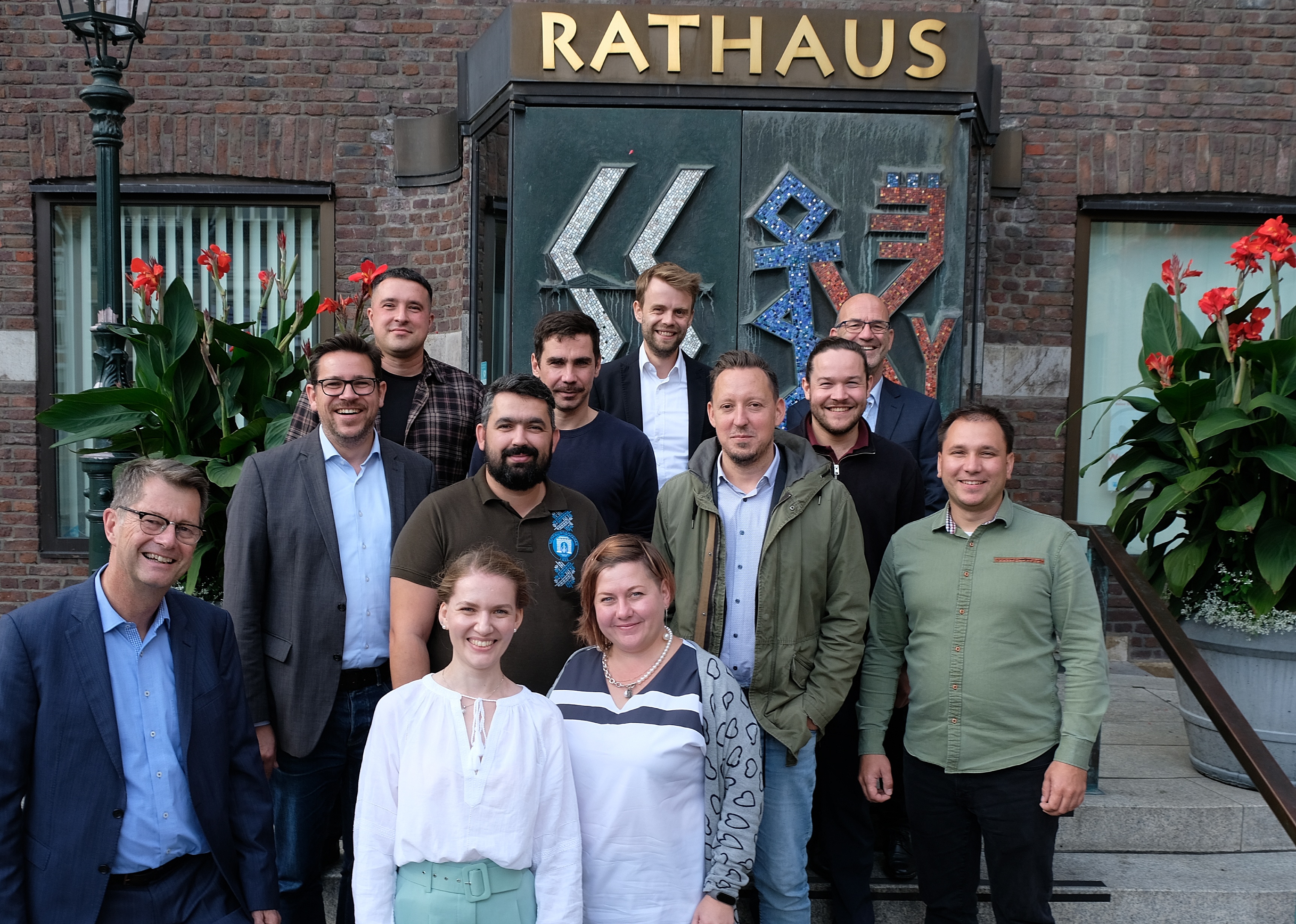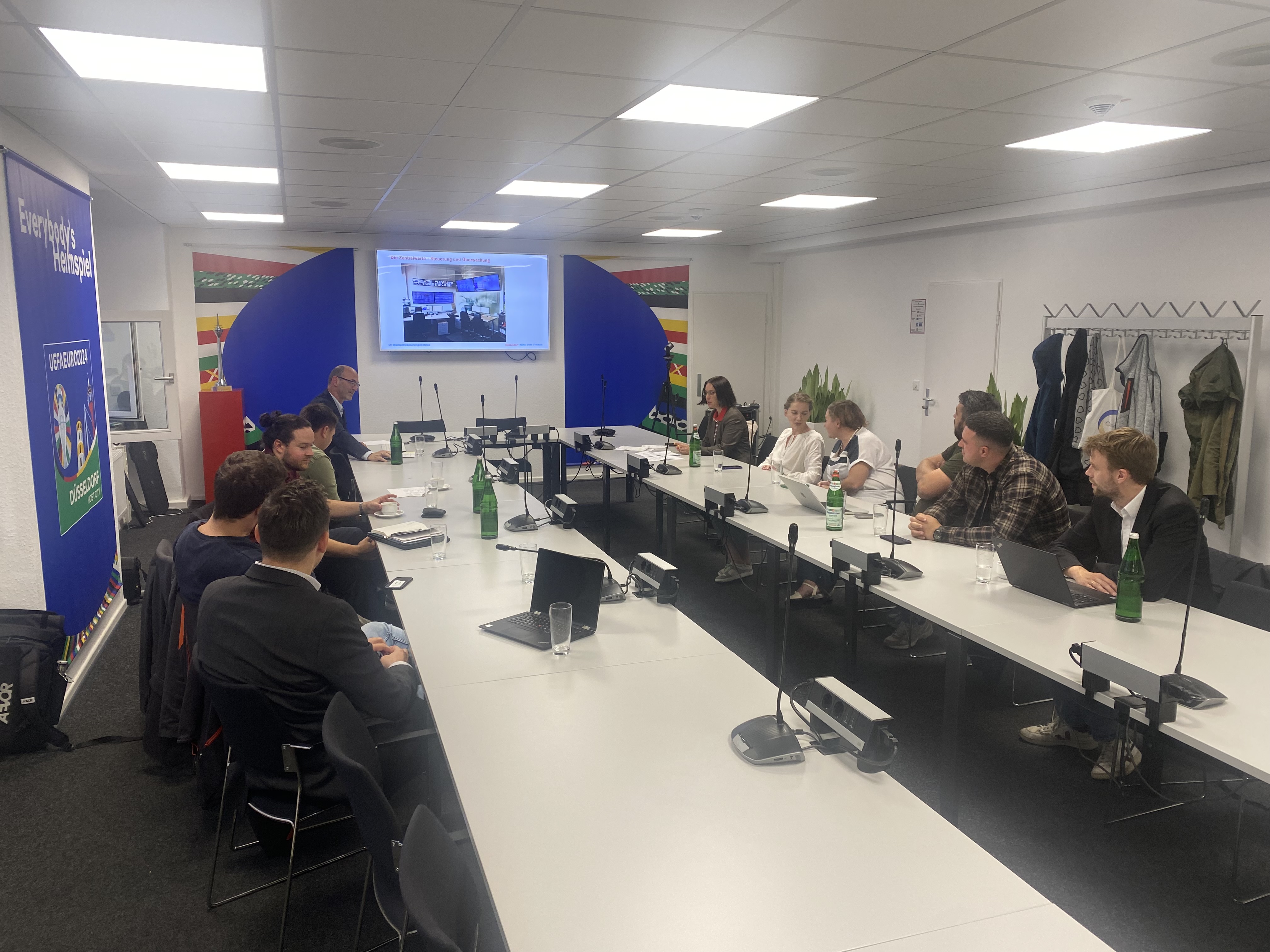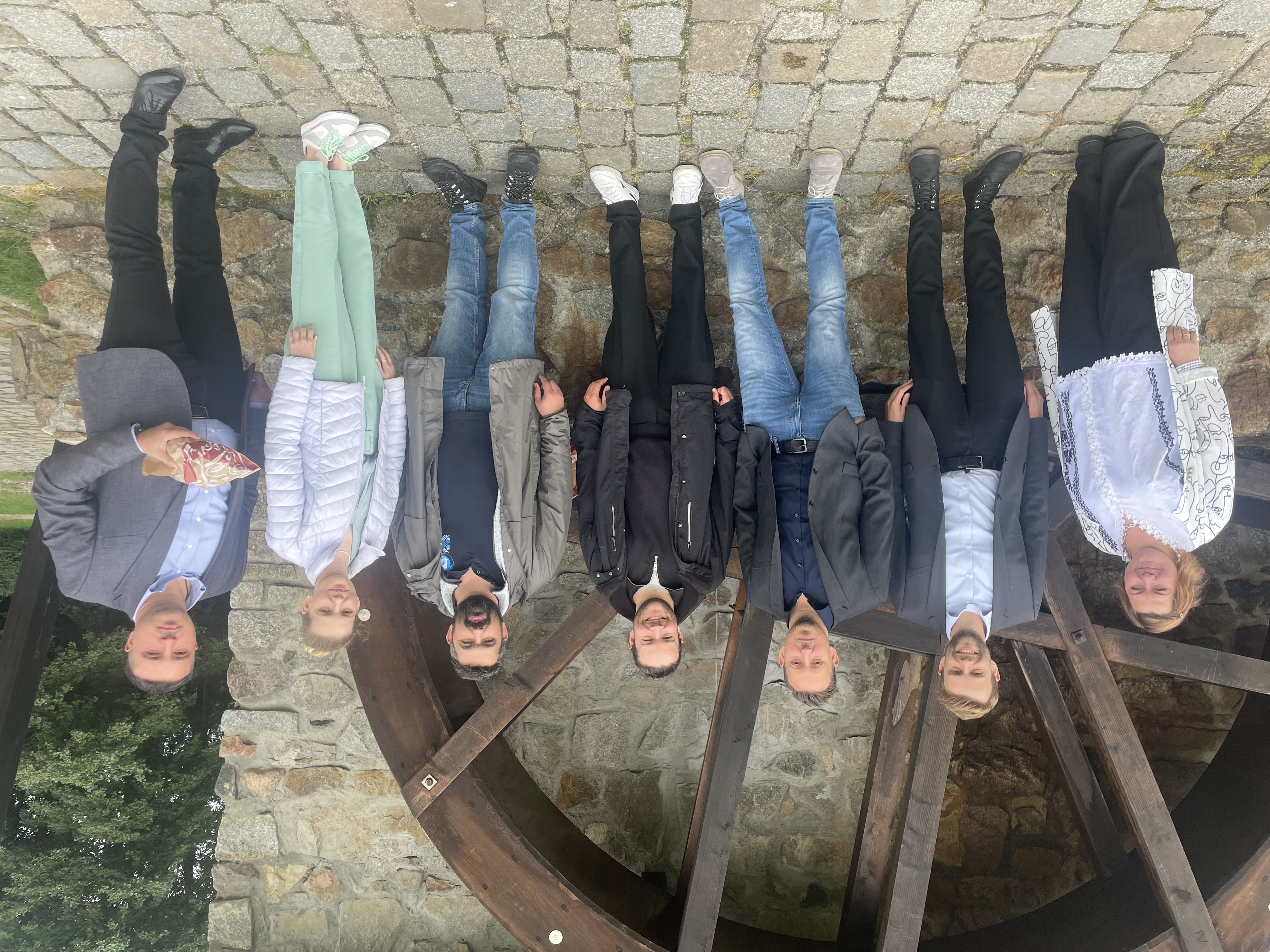From Düsseldorf and Hoyerswerda to Ukraine: AEE strengthens energy partnerships
During the week of 15 to 19 September 2025, delegations from Chernivtsi and Novovolynsk visited their energy partner cities Düsseldorf and Hoyerswerda. As part of the ‘Energy Transition Town Twinnings 3.0’ project, funded by Germany's Federal Foreign Office and coordinated by the Germany Renewable Energy Agency (AEE), a wide-ranging programme was organised to deepen existing ties and establish new contacts.
The special nature of the partnerships between Chernivtsi and Düsseldorf and Novovolynsk and Hoyerswerda was already evident in the preparations for the workshop. As it was not possible to visit the Ukrainian twin towns due to Russia's full-scale invasion of Ukraine, the municipalities decided to combine the workshops in Germany and visit Düsseldorf first, followed by Hoyerswerda. However, the journey to Düsseldorf also posed an organisational challenge. As there is currently no air traffic over Ukrainian territory, the representatives from Ukraine had to choose alternative connections and were thus on the road for two days.

 After their long journeys, the delegation visited the Düsseldorf waste incineration plant on Tuesday morning to learn more about the plant's waste heat potential during a guided tour. Following lunch, the delegation was welcomed to Düsseldorf City Hall by Stefan Ferber, Head of the Municipal Office for Environmental Protection. He conveyed greetings from Düsseldorf's Lord Mayor Stephan Keller and expressed his solidarity with Ukraine in view of Russia's full-scale invasion of Ukraine. At the same time, he emphasised the opportunities offered by local and renewable energy, thus introducing the presentation by Frank Bockof, head of the Düsseldorf-Süd sewage treatment plant. He outlined local plans for a climate-positive sewage treatment plant using combined heat and power plants based on sewage sludge and a folding photovoltaic system. The projects led to interested enquiries and presentations from the twin cities of Düsseldorf and Chernivtsi, as many Ukrainian sewage treatment plants have serious problems with sewage sludge storage. After a climate walk through the city centre, the evening ended at the longest bar in the world before the delegation travelled across the country to Hoyerswerda on Wednesday.
After their long journeys, the delegation visited the Düsseldorf waste incineration plant on Tuesday morning to learn more about the plant's waste heat potential during a guided tour. Following lunch, the delegation was welcomed to Düsseldorf City Hall by Stefan Ferber, Head of the Municipal Office for Environmental Protection. He conveyed greetings from Düsseldorf's Lord Mayor Stephan Keller and expressed his solidarity with Ukraine in view of Russia's full-scale invasion of Ukraine. At the same time, he emphasised the opportunities offered by local and renewable energy, thus introducing the presentation by Frank Bockof, head of the Düsseldorf-Süd sewage treatment plant. He outlined local plans for a climate-positive sewage treatment plant using combined heat and power plants based on sewage sludge and a folding photovoltaic system. The projects led to interested enquiries and presentations from the twin cities of Düsseldorf and Chernivtsi, as many Ukrainian sewage treatment plants have serious problems with sewage sludge storage. After a climate walk through the city centre, the evening ended at the longest bar in the world before the delegation travelled across the country to Hoyerswerda on Wednesday.
 In Hoyerswerda, the cultural programme continued on Thursday morning. While baking bread at the Krabat Mill Schwarzkollm, the delegation learned about Sorbian history and culture and discovered numerous parallels to traditions in western Ukraine around Novovolynsk in Sorbian clothing, language, art and crafts. In the afternoon, the group visited the technology museum Energiefabrik Knappenrode, a former coal briquette factory not far from Hoyerswerda, and the city's interactive laboratory. Sebastian Schindler from the Hoyerswerda Economic Development Agency explained to the delegation how the city dealt and deals with its growth and population decline, which is closely linked to the history of the German Democratic Republic (GDR), the rising average age of the population, the racist attacks in September 1991 and the coal phase-out. The subsequent presentation by Iryna Semenenko and Olha Gorodnytska from the energy partner city of Novovolynsk was also inspiring, highlighting the difficulties faced by the municipality between Russia's full-scale invasion of Ukraine and the associated influx of internally displaced persons, as well as the goal of transformation in the context of the energy transition. Both presentations left a lasting impression on the group, even after the joint dinner.
In Hoyerswerda, the cultural programme continued on Thursday morning. While baking bread at the Krabat Mill Schwarzkollm, the delegation learned about Sorbian history and culture and discovered numerous parallels to traditions in western Ukraine around Novovolynsk in Sorbian clothing, language, art and crafts. In the afternoon, the group visited the technology museum Energiefabrik Knappenrode, a former coal briquette factory not far from Hoyerswerda, and the city's interactive laboratory. Sebastian Schindler from the Hoyerswerda Economic Development Agency explained to the delegation how the city dealt and deals with its growth and population decline, which is closely linked to the history of the German Democratic Republic (GDR), the rising average age of the population, the racist attacks in September 1991 and the coal phase-out. The subsequent presentation by Iryna Semenenko and Olha Gorodnytska from the energy partner city of Novovolynsk was also inspiring, highlighting the difficulties faced by the municipality between Russia's full-scale invasion of Ukraine and the associated influx of internally displaced persons, as well as the goal of transformation in the context of the energy transition. Both presentations left a lasting impression on the group, even after the joint dinner.
The subsequent dinner with a view of the Lusatian Lake District at sunset also provided a preview of Friday. The following day began early with a visit to the Schwarze Pumpe coal-fired power plant, which is still in operation. Here, the operator LEAG gave the delegation an insight into the challenges and transformations that are (and will be) occurring in the region today and in the future as a result of the switch to renewable energies. The extent of coal mining was finally made clear at the Welzow-Süd open-cast mine, surrounded by villages that had already been excavated and abandoned, the pit around 80 metres deep and the largest moving machine in the world, a spoil conveyor bridge with a total length of 502 metres. Similar to the lake landscape seen on the previous evening, Welzow-Süd is also to be turned into a quarry pond to promote local tourism, which is widely regarded as one of the key opportunities arising from the coal phase-out. At the same time, the region is receiving financial support in the form of structural reinforcement funding with the aim of becoming a key economic location in the future with the help of locally produced renewable energies.
During their time together, all participants were able to learn a lot about the ongoing transformations in the other municipalities. The joint exchange highlighted the importance and potential of transnational projects in order to look beyond the horizon and view the energy transition as a holistic issue with many projects, and numerous people involved with their own unique stories.


Social Media